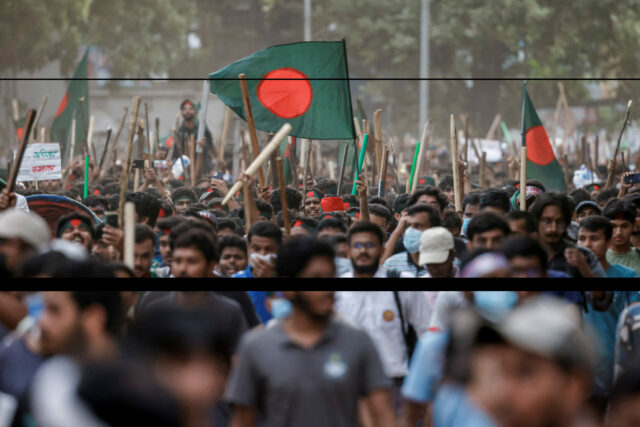About 1,500 people died in protests that brought down Bangladeshi prime minister Sheikh Hasina this year, and as many as 3,500 may have been forcibly abducted during her 15-year rule, interim leader Muhammad Yunus said on Sunday.
The estimate by the economist and Nobel peace laureate, who is due to organise elections, is higher than the previous official count of about 1,000 deaths in the student-led demonstrations, which drew a ferocious crackdown.
The protests, which began in July as a student-led movement against public sector job quotas, escalated into some of the deadliest unrest since Bangladeshi independence in 1971, forcing Hasina to flee to India.
“Every day, new names are being added to the list of martyrs,” Yunus said in an address to the nation marking 100 days of the interim government, pledging to prosecute those
responsible for the violence.
Yunus’ government has vowed to ensure justice for victims of what he referred to as the “autocratic regime’s wrath”.
Yunus said a commission investigating forced disappearances had found information on 1,600 cases as of October, but that the total could potentially exceed 3,500.
And he reiterated his government’s commitment to demanding Hasina’s extradition from India.
“We will prosecute all the crimes committed over the past 15 years,” he said, adding that the government had begun efforts to bring those responsible for the disappearances and killings, and the July-August violence, to international courts.
He said a road map for the next general election in the country of 170 million people would be unveiled once electoral reforms were completed.
Political parties including the Bangladesh Nationalist Party (BNP) led by former prime minister Khaleda Zia have been pressing the interim government for a clear plan to hold a
national election as soon as possible.
In September, army chief General Waker-uz-Zaman, whose refusal to support Sheikh Hasina during the student protests led her to flee, told Reuters that democracy should be restored within a year to a year-and-a-half, but urged patience.
With Reuters inputs
Thirty eight years in journalism, widely travelled, history buff with a preference for Old Monk Rum. Current interest/focus spans China, Technology and Trade. Recent reads: Steven Colls Directorate S and Alexander Frater's Chasing the Monsoon. Netflix/Prime video junkie. Loves animal videos on Facebook. Reluctant tweeter.





